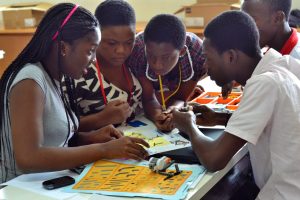Information literacy is a crucial skill in the pursuit of knowledge. It involves recognizing when information is needed and being able to efficiently locate, accurately evaluate, effectively use, and clearly communicate information in various formats. It refers to the ability to navigate the rapidly growing information environment, which encompasses an increasing number of information suppliers as well as the amount supplied, and includes bodies of professional literature, popular media, libraries, the Internet, and much more. Increasingly, information is available in unfiltered formats, raising questions about its authenticity, validity, and reliability. This abundance of information is of little help to those who have not learned how to use it effectively.
To become lifelong learners, we need to know not just how to learn, but how to teach ourselves. We must acquire the skills necessary to be independent, self-directed learners. An information literate person should be able to:
- Identify information needs and determine the extent of information needed. Clearly and concisely define the question to be answered, and realize that the question may evolve.
- Locate and retrieve appropriate sources of information.
- Understand the structure of information: how is it produced, disseminated, organized, cataloged, stored, and retrieved, and how these factors vary by discipline. For example, how do scholars or professionals keep up to date in and contribute to their field.
- Use indexes and other search tools effectively and efficiently to find specific resources (e.g., select appropriate tools, formulate search strategies, use appropriate search techniques, evaluate results)
- Evaluate information and its sources critically.
- Understand different types of sources and formats, and how to use them.
- Evaluate the relevance and reliability of the information retrieved.
- Synthesize the information retrieved, integrate it into one’s current knowledge base, and successfully apply it to the original information need.
- Present this newly acquired knowledge so that others can use it.
- Determine the audience’s needs and the best presentation format; know the standards and criteria for presenting information in the relevant subject/field/discipline.
- Properly cite sources: direct the audience to sources of further information and acknowledge one’s sources.
- Translate these abilities and concepts to new projects and disciplines.
Retireved from: http://www.wesleyan.edu


